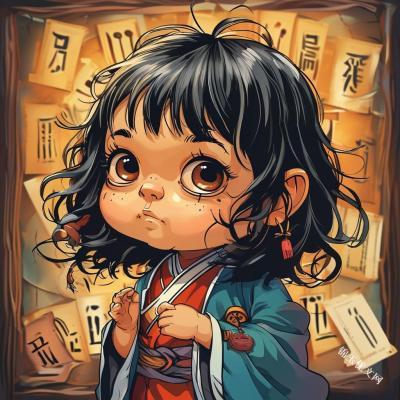梦见大鹏鸟的寓意与象征意义
在这篇文章中,我们将探讨梦见大鹏鸟的象征意义,以及它可能暗示的情感和心理状态。我们会详细分析梦中的大鹏鸟与其象征意义的关系,让读者...
扫一扫用手机浏览
In this article, we will explore the practice of pasting the character "Fu" in an upside-down position during the Spring Festival. We will discuss the origins of this unique tradition, its symbolic meaning, and its significance in Chinese culture.
The Significance of "Fu" in Chinese Culture

The character "Fu" (福) represents good fortune and happiness in Chinese culture. It is one of the most important symbols during the Spring Festival, a time when families wish for prosperity and good luck in the coming year. It is common to see "Fu" characters displayed prominently in homes, supermarkets, and public spaces, signaling the arrival of this auspicious season. This practice dates back to ancient China, wherein various customs and rituals were established to secure blessings and protection for families.
The Origin of Upside-Down "Fu"
The custom of pasting the "Fu" character upside down is deeply rooted in a pun within the Chinese language. In Mandarin, the word for "upside down" (倒, dào) sounds similar to the word for "arrive" (到, dào). Therefore, when people paste the "Fu" character upside down, it expresses the wish that blessings and good fortune will "arrive" in their homes. This clever use of language highlights the importance of wordplay in Chinese traditions, wherein homophones are often leveraged to create meaningful expressions of wishes and hopes.

Modern Practices and Variations
While the upside-down "Fu" character is a widely recognized practice, different regions in China have also adopted unique variations. For instance, some people may combine the upside-down "Fu" with elaborate artistic couplets that convey specific messages or represent personal aspirations for the upcoming year. This blending of tradition and personal expression demonstrates how cultural practices can evolve while retaining their core significance over time.
Conclusion on the Upside-Down "Fu"
The tradition of pasting the "Fu" character upside down serves as a vivid reminder of the cleverness and depth permeating Chinese culture. It not only reflects the desire for happiness and luck but also celebrates the beautiful intricacies of language that enrich these customs. By embracing the symbolism behind this tradition, families can enhance their celebrations and share their hopes for the future with one another.
In conclusion, the upside-down "Fu" character contains a deep cultural significance rooted in the desire for blessings and good fortune. With its origins in puns and language, this tradition has evolved, yet its core essence remains vital, enhancing the spirit of the Spring Festival.